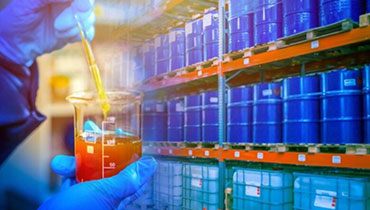Chemicals

DMPP can reduce the accumulation of NO3- in crops and yield, thus improving the quality of agricultural products. To increase crop yield, adding DMPP to urea has a more significant yield increase effect than applying urea alone. Improve the economic benefits of fertilization by increasing production.
DMPP works through the first step of nitrification. Reduce the activity of ammonium oxidizing bacteria in the soil within a certain period of time, thereby hindering the conversion of NH4-N to NO3-N and preventing nitrogen fertilizer from being leached or volatilized. It has no effect on the second step of the nitrification reaction, but as long as the first step of the nitrification reaction is inhibited, the entire nitrification reaction will be inhibited.Inhibit nitrification, reduce nitrogen fertilizer leaching or volatilization, and improve fertilizer utilization.Promoting the absorption of micronutrients and phosphorus in calcareous soil with high pH by crops can improve the effectiveness of other nutrients to facilitate crop
NBPT is a common ureas inhibitors nowadays. Several compounds act as urease inhibitors, but only N-(n-butyl) thiophosphoric triamide (NBPT) has been used worldwide, being the most successful in a market that has grown 16% per year in the past 10 years. In contrast to DCD it is safe in store and more safe for environment. In comparison to urea, NBPT-treated urea reduces NH3 loss by around 53%. Yield gain by NBPT usage is of the order of 6.0% and varies from −0.8 to 10.2% depending on crop species. Nitrification inhibitors usually increase NH3 volatilization and mixing them with urease inhibitors partially offsets the benefits of the latter in reducing NH3 loss. The efficacy of NBPT to reduce NH3 loss is well documented, but there is a need for further improvement to increase the period of inhibition and the shelf life of NBPT-treated urea. It is applicable to urea compounds fertilizers such as NPK and UAN fertilizers.



